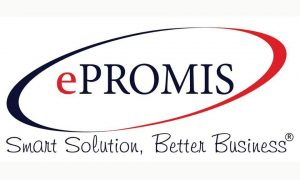CCS: How we’re helping firms minimise VAT exposure
CCS Gulf’s general manager Ian Hauptfleisch explains how it helps contractors to legally offset VAT

For many years, the UAE was synonymous with the expression ‘Tax Free’, and in many ways still is (at least in terms of personal taxation in terms of income). It is a strong factor in why many individuals and companies have chosen to set up in the UAE and will remain a factor for the foreseeable future. It goes without saying that there are many more factors that add to the mix of why a company or person would operate from the UAE, market opportunity and strategic location to name just two.
At the beginning of 2018, the first direct taxation was introduced to UAE in the form of VAT (this same form of taxation being introduced across the GCC albeit with slightly differing time-frames, the rate of VAT being set at 5% for consistency). The tax levied on goods and services and intended to be paid by the end user is collected by the goods or service provider and paid to the Federal Tax Authority on set reporting periods throughout the year.
All well and good, but how does this potentially impact the construction industry, perhaps the largest sector in the UAE and arguably, significantly across the globe.
Although the ‘intention of VAT’ is as a tax on the end-user, the reality is that each and every element along the path of a construction project is going to attract a VAT liability. Individually, these may be at times almost insignificant (at other times certainly not) but add up across a construction project to equate for some very significant sums indeed.
When looking at the positive impact CCS has had for its customers in terms of VAT exposure, it is important to understand what their core products deliver.
CCS Candy and CCS BuildSmart are flagship construction software suites that cater for the entire construction project phases from initial estimate right through to the hand-over of the completed structure. It is this genuine and complete end-to-end coverage that enables CCS to minimise a company’s exposure to VAT liability.
For transparency, it is important to clarify that ‘Tax Avoidance’ is not on the table and would be an illegal and dangerous path for any business to go down. What a business can do is ensure that they are able to offset the maximum amount of VAT as legally permissible to minimise their exposure and bill at each VAT reporting date.
As CCS Candy and CCS BuildSmart seamlessly link every single process and transaction across a project, it is able to identify and report on each financial movement (payments in and out) and to attribute them to individual projects.
This can even be done where part of a resource is used across multiple projects as in plant, equipment or labour.
Being able to accurately drill down at this level ensures that each and every payment made for absolutely any item or service is collated and the VAT paid is able to be applied as a tax credit. This amount can then be offset against the VAT liability that is calculated to be paid out. The premise applied is of using the ‘intention of VAT’ to be borne by the end-user, by deducting amounts of VAT already paid by the business along the way, from the end figure, so it is only paid once.
The level of complexity involved in this deep drilling is an almost silent benefit of the CCS Complete Solution (Candy and BuildSmart) proposition as a whole and represents a substantial resource for companies of any size as it provides data to make VAT (and any other form of taxation) far simpler for the financial team to navigate.
Benjamin Franklin famously said, “In this world nothing can be said to be certain, except death and taxes.”
That remains completely true but, with the help of CCS Candy and CCS BuildSmart supporting your end-to-end construction and building business, you will not only have the worlds’ leading Estimation and Construction ERP software streamlining your processes, you will leverage its power in improving efficiency profit whilst protecting that margin, by ensuring your VAT exposure is kept to the minimum.















